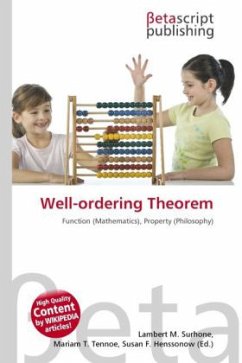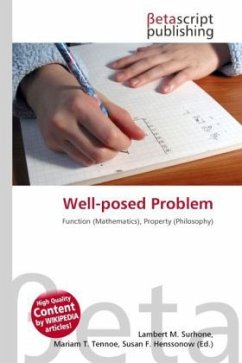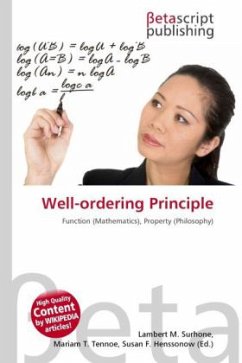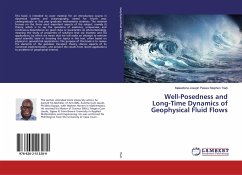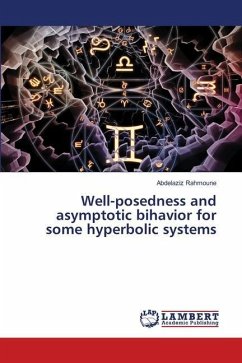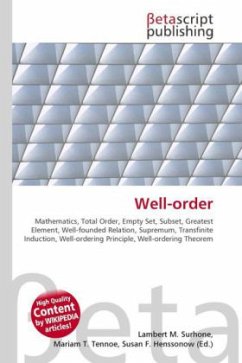
Well-order
Versandkostenfrei!
Versandfertig in 6-10 Tagen
19,99 €
inkl. MwSt.

PAYBACK Punkte
10 °P sammeln!
Please note that the content of this book primarily consists of articles available from Wikipedia or other free sources online.In mathematics, a well-order relation (or well-ordering) on a set S is a total order on S with the property that every non-empty subset of S has a least element in this ordering. Equivalently, a well-ordering is a well-founded total order. The set S together with the well-order relation is then called a well-ordered set. Every element s, except a possible greatest element, has a unique successor (next element), namely the least element of the subset of all elements gre...
Please note that the content of this book primarily consists of articles available from Wikipedia or other free sources online.In mathematics, a well-order relation (or well-ordering) on a set S is a total order on S with the property that every non-empty subset of S has a least element in this ordering. Equivalently, a well-ordering is a well-founded total order. The set S together with the well-order relation is then called a well-ordered set. Every element s, except a possible greatest element, has a unique successor (next element), namely the least element of the subset of all elements greater than s. Every subset which has an upper bound has a least upper bound. There may be elements (besides the least element) which have no predecessor. If a set is well-ordered, the proof technique of transfinite induction can be used to prove that a given statement is true for all elements of the set. The observation that the natural numbers are well-ordered by the usual less-than relationis commonly called the well-ordering principle. The well-ordering theorem, which is equivalent to the axiom of choice, states that every set can be well-ordered. The well-ordering theorem is also equivalent to the Kuratowski-Zorn lemma.



